|
InteGRATion into
GRATeFULLness
Singing&Sounding keeps me Sound
![]()
The Heaven rejoices and the Earth jubilates and the Sea resounds
with its fullness
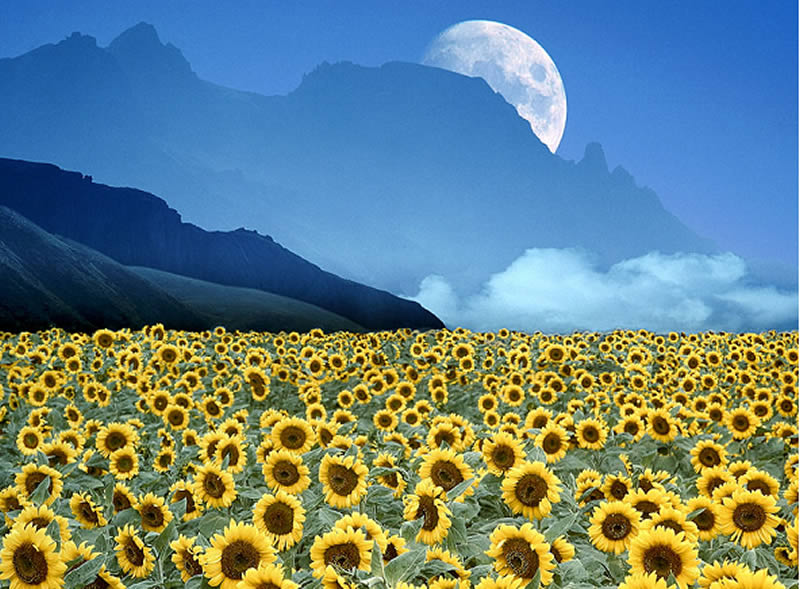
In "Webshot.com"
>Digital Art this image is called "Illusions", but for me it
represents this song:
| 2007_08_17 + |
lyrics: Psalm 67 |
tune: traditional |
|
Three times the Bible conveys vividly the ecstasis
of Heaven on Earth in the same images.
In presenting the lyrics of the song, I did not want to extract the sung lines
from their contexts,
because each psalm enriches us with additional images of Nature and Hu/Man
rejoicing.
The fields exult and the trees sing-in-joy and the rivers clap their hands,
(see
also the song "and with joy shall you go out")
and the people from "the family of nations" join in with their voices
and their musical instruments.
I have tears in my eyes, while my ears imagine this magnificent sounding and
resounding of Heaven and Earth.
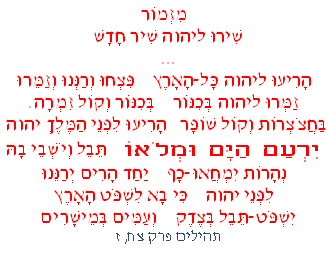 |
 |
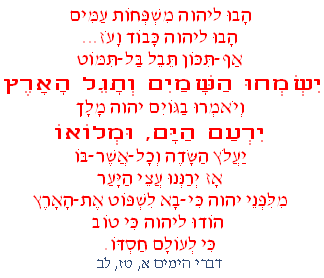 |
There are so many verbs for "rejoicing"
in the Bible, and so few in English.
Although"to be glad", "to be joyous", " to be jubilant"
is valuable in itself, but it is different from the verbs of actions in Hebrew.
Compare 3 versions of Ps. 96 in "Biblegateway"
As to "the Sea thunders" , I like the Hebrew original, but I also
like the translations: "the sea roars" and "the sea resounds".
As to "all its fullness", or "the fulness therof", - so
important for me at present - it's a pity, that the New International
Version has watered it down.
| King
James Version
11Let the heavens rejoice, and let the earth be glad; let the sea roar, and the fulness thereof. 12Let the field be joyful, and
all that is therein: |
New King James Version Let the heavens rejoice, and let the earth be glad; Let the sea roar, and all its fullness; 12 Let the field be joyful, and all that is in it. Then all the trees of the woods will rejoice |
New International Version Let the heavens rejoice, let the earth be glad; 12 let the fields be jubilant, and everything in them.
|
August 18, 2007
I am enchanted by the vision of "the family of
nations" in the Psalm in Chronicles
- and do accept it, that until now poets and people alike could express GRATe-FULL-ness
only by praising "God", "the King"
[see my note in "Avinu Malkenu"
about "God's" present preference to play neither the role of a father
nor of a king,
but - as long as we are not ready to be his/her peers and partners - to be
a kind of coach for us!}
Today - when opening TV while eating my lunch -
a program "Die Musikschau der Nationen" was just beginning.
They said, 9 nations were taking part (in the North German town Bremen),
and in the middle of the first number - Sweden - I almost closed, it was too
military for me.
Indeed all the ensembles had military, police or fire-worker background.
But the next groups - from Russia, from Malaisia, from Hungary - performed
marvellously.
And only in time -
through the small interviews in between and a short movie about a summer-camp
near Bremen,
where young people from 11 nations take care of the graves of those killed
and murdered during Second World war
(in this one from among 6000 graves only 800 "belong" to soldiers,
among them 16 year olds, recruited in the last moment),
I understood,
that this Music-Show of Nations finances
the projects of volunteers
who take care of those Second World War Cemeteries.
My father, Siegfried Guth, "lies" also in such a cemetery - in Catalania,
Sicily.
OF course, there and probably in most "graves" there is only a stone
with a name.
I myself - when in Egypt, Alexandria, in 1981, traveled especially to the
gigantic war-cemetery of El-Alamein,
as the "place" was nearer to my heart than Catalania, to which only
my mother went, on her way to visit me in Israel, in 1966.
There will be a continuation of the Music-show of Nations on Sept. 1, I hope
I won't miss it.
"The Family of Nations"....2500 years after that biblical poet ~~~~
at least in some places on the planet
2011
On October 14, 2011, when working on
"Heaven-to-Earth-9" [before July
17, 2007]
I found - right on top - Etti Ankri's tune to Psalm 67.
I didn't like some of the original words or emphasis of words.
All this giving thanks to 'God' doesn't resonate with me any longer.
Grate-full-ness is the state of my very being.
So some of the lines rearranged themselves a bit -
while adapted themselves spontaneously to the old, popular song on this page..
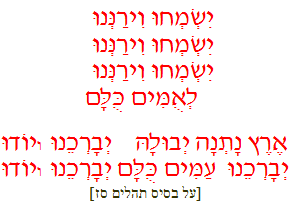
![]()
2011
 |
En-JOY-ing
and growing with Mika and my Family following the documentation "Mika's Heaven on Earth", inserted since Song Game 2007_01_01 |
 |
In Sao Paulo -
the city named after "the holy" Jew Paulus - April 24, 2011
continued
from Song Page 2007_08_16
The Monument to the Flags and its sad presentation
of conquering and enslaving
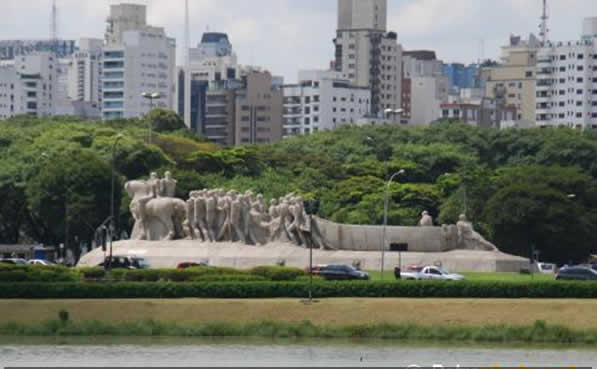
The
monument also appears among the seven photos of "Sao Paulo The City Brazil
Traveling without destination
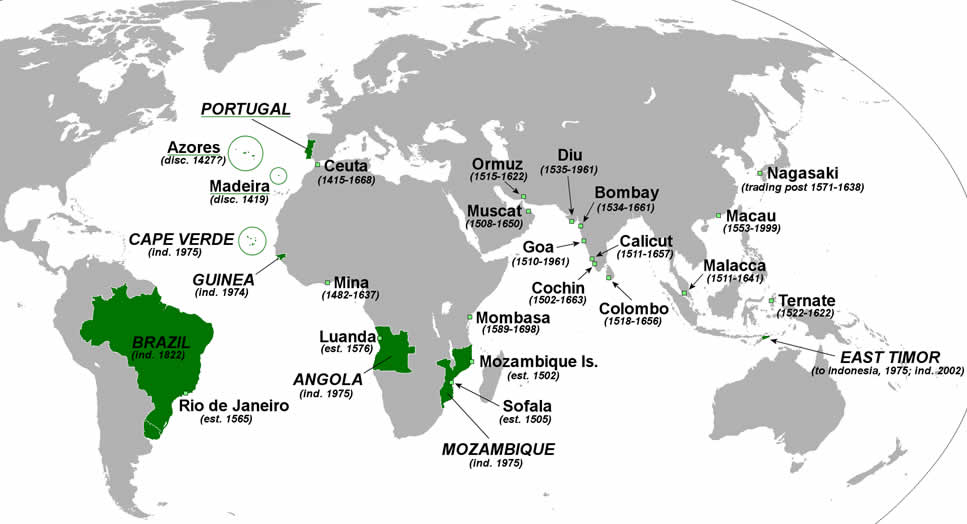
Once the Empire
of Portugal......
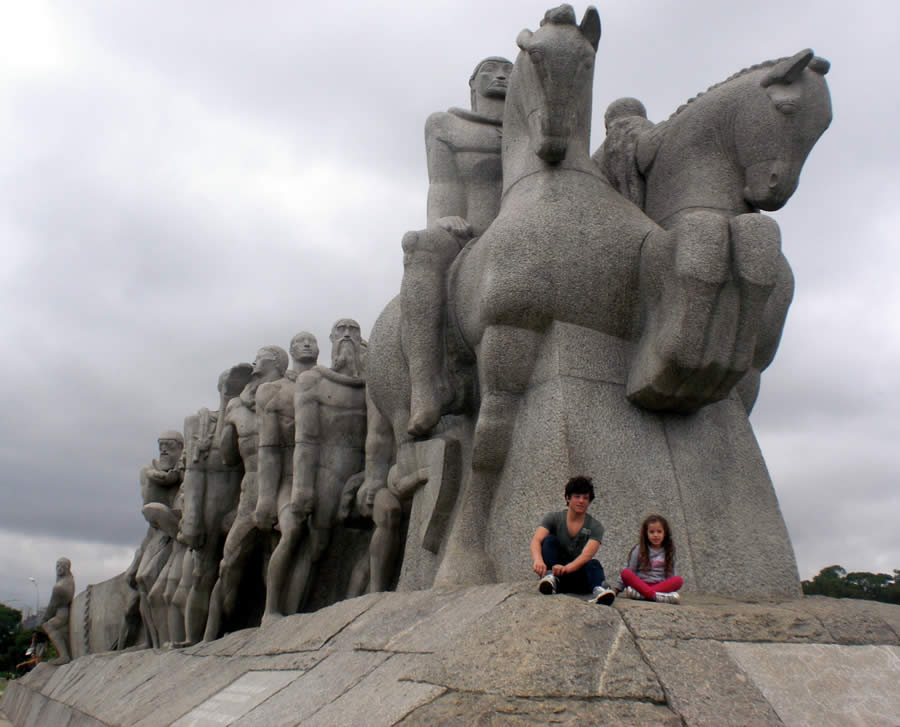
Victor_Brecheret
1894-1955
"His best-known work, the massive Monument
às Bandeiras at the Parque Ibirapuera in São Paulo,
was proposed (in the form of a plaster miniature) in 1920, begun in 1936,
and completed in 1953.
Info about the meaning of the sculpture I found only in Hebrew
and in French,
nothing in English!
« Monument aux Drapeaux » est la traduction
littérale du nom portugais « Monumento às Bandeiras ».
Or ce monument ne possède ou représente aucun drapeau.
Il rend hommage en réalité aux Bandeirantes,
pionniers du XVIIe siècle partis explorer les territoirs intérieurs
du Brésil.
Les expéditions des bandeirantes étaient appelées entradas
(entrées)
lorsqu'elles étaient d'origine officielle ou bandeiras (drapeaux) lorsqu'elles
étaient d'ordre privé.
Ce dernier terme étant à l'origine au nom.
Bandeirante, du point de vue sémantique, est donc « l'homme qui
suivait un drapeau ».
Il s'agit d'une sculpture en granite de 50 m de long, 15 m de
large et 12 m de haut.
En représentant les bandeirantes,
elle rend compte des différentes ethnies de ceux qui
ont contribué au peuplement du Brésil
et des efforts qu'ils durent réaliser pour pénétrer l'intérieur
des terres.
Une des images représente un chef portugais, l'autre un guide indien.
En plus des Portugais, portant la barbe et chevauchant leur monture,
se trouvent des Noirs, Mamelouks et Indigènes convertis au
christianisme, la croix au cou.
Les hommes tirent derrière aux une embarcation utilisée pour
les expéditions fluviales.

There are many
photos, but no closeups like mine
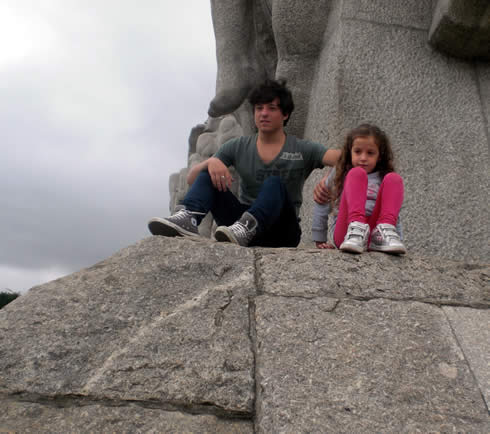 |
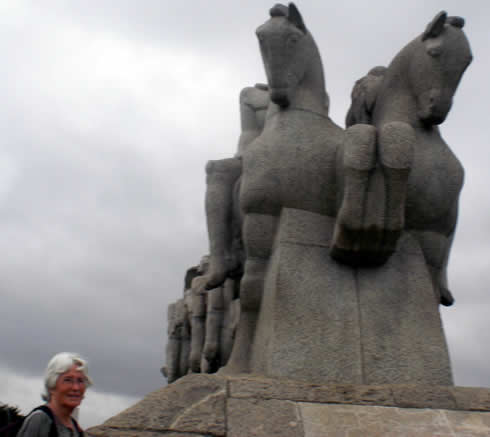 |
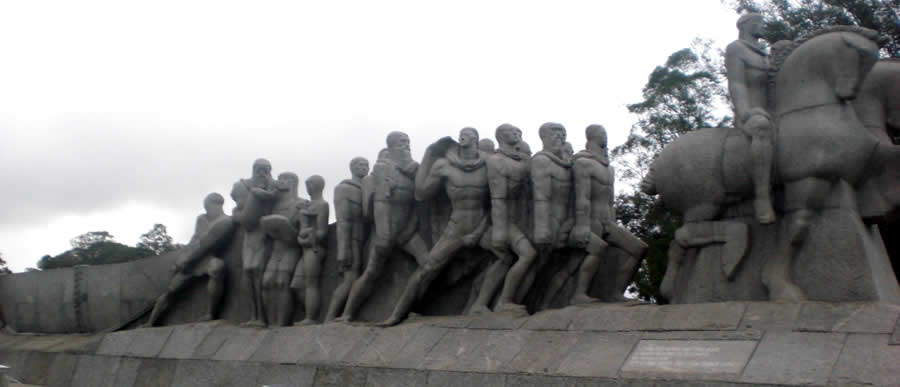
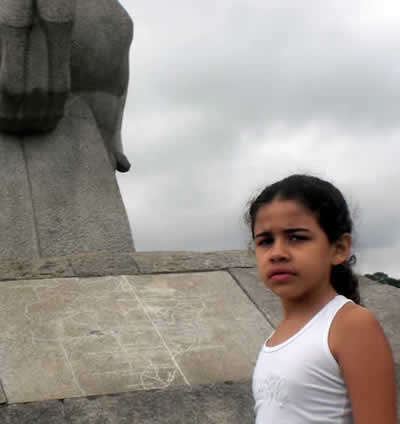
Since this sculpture is meant to show how Brazil
was populated by people from many ethnic brackgrounds,
I liked the little girl in front ot the heavy horsemen
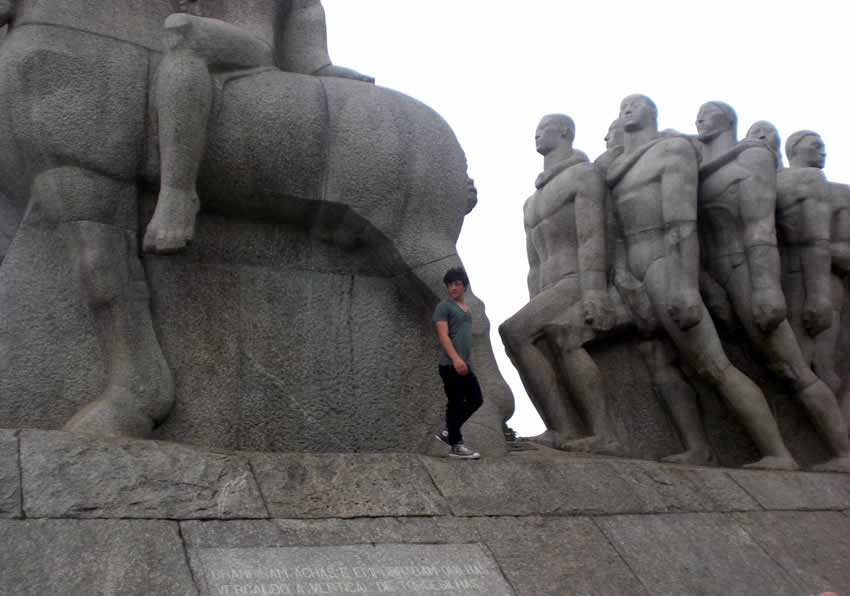
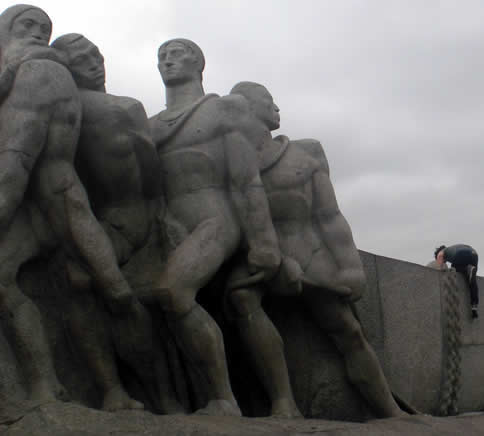 Tomer remembers his Parkour period mentioned only on Nov. 7-8, 2009 in "My Desire today" unaware of the tortured and torturing people in stone, on whose heads he climbs |
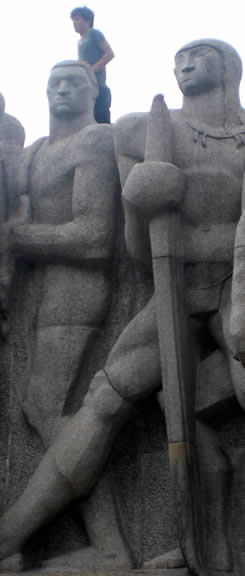 |
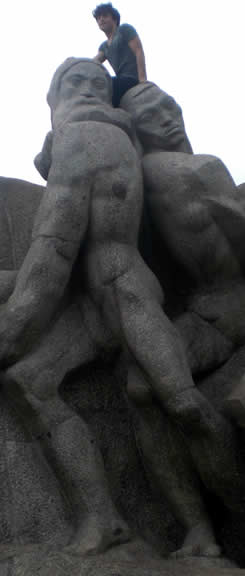 |
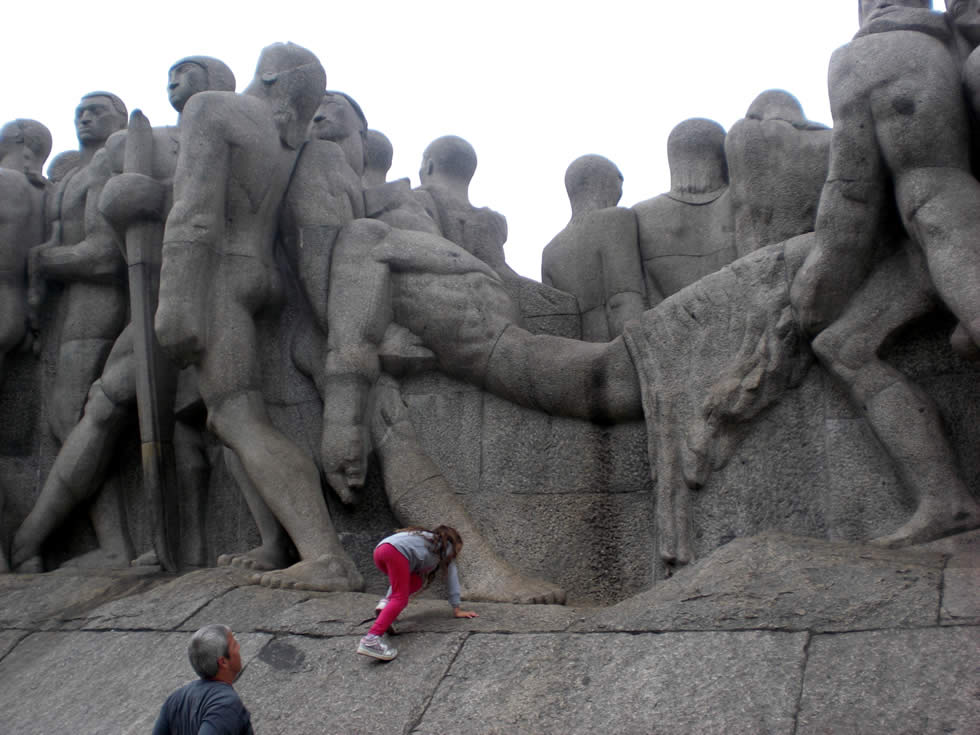
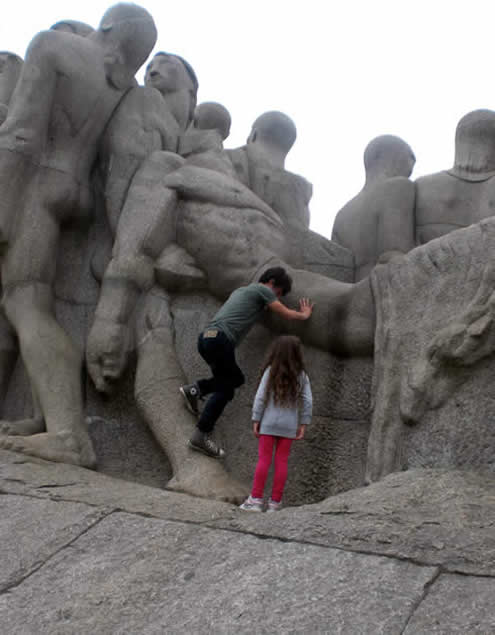 Are Tomer and Mika climbing on a corpse-in-stone? |
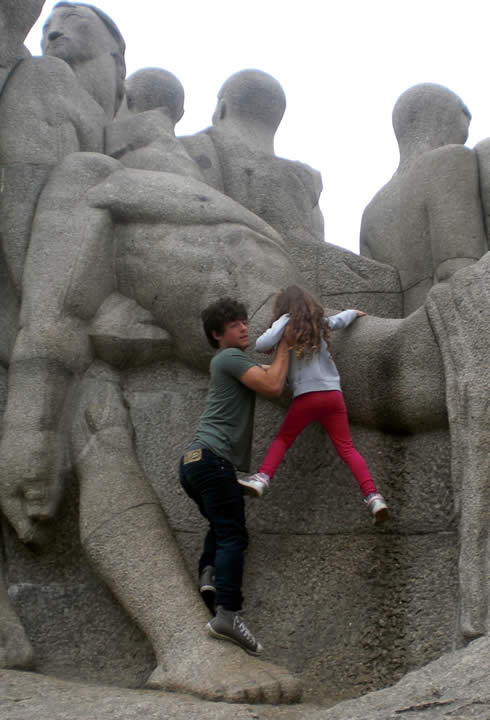 |
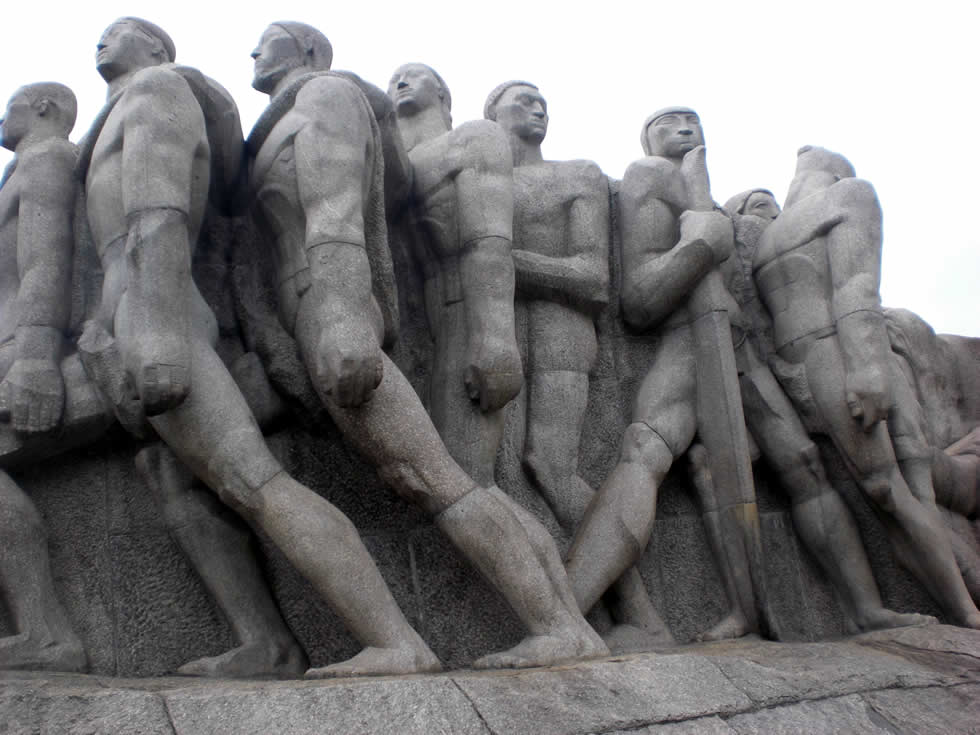
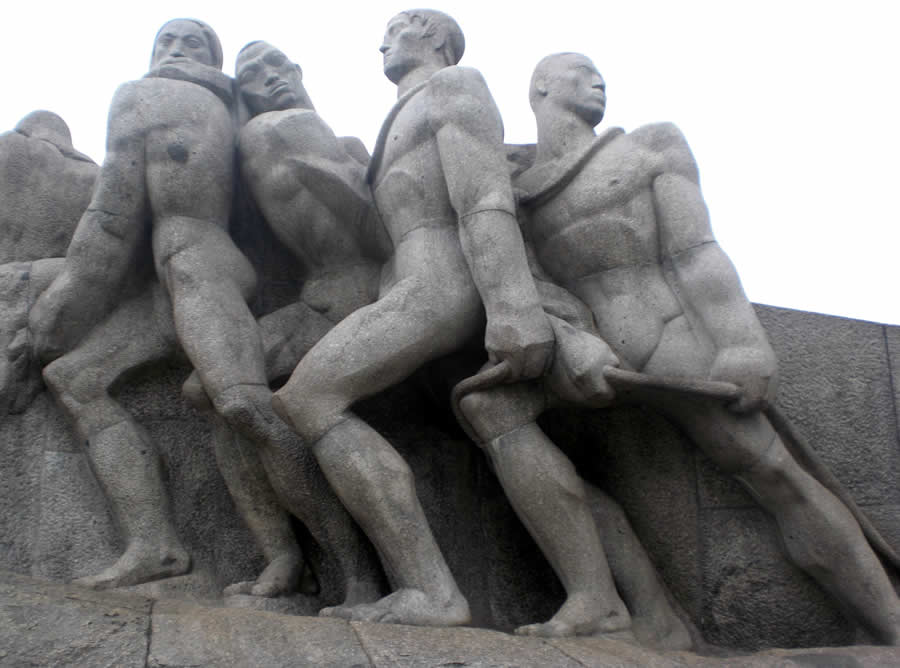
Inside the Ibirapuera Park
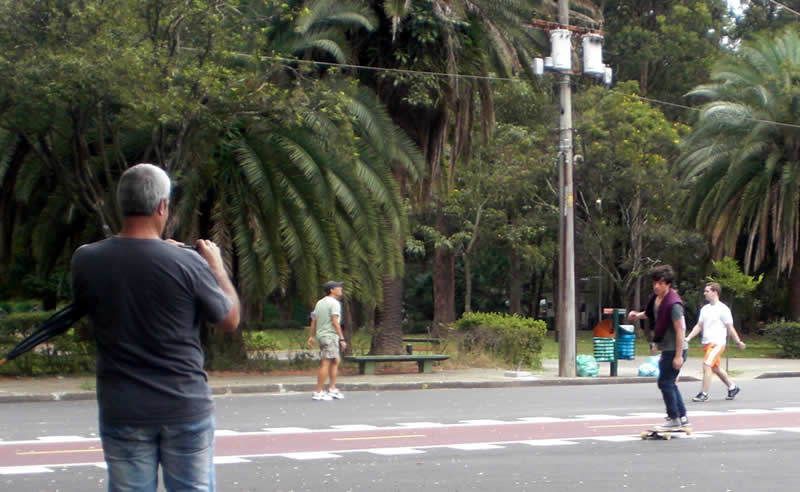
Where did Tomer get the scate-board from?
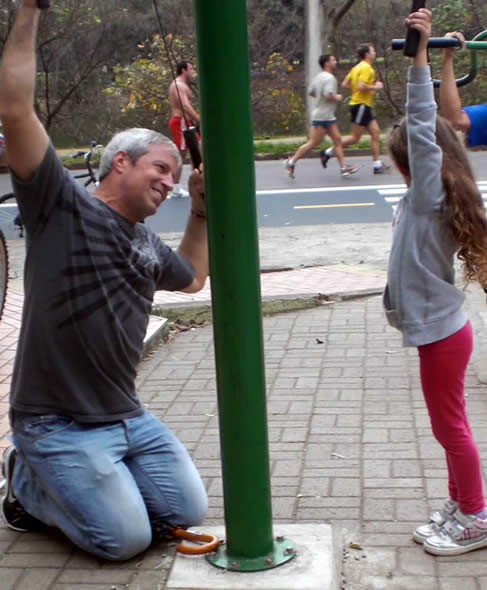 |
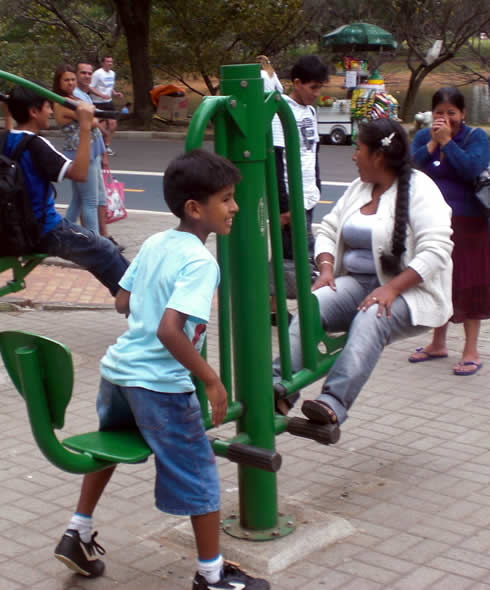 |
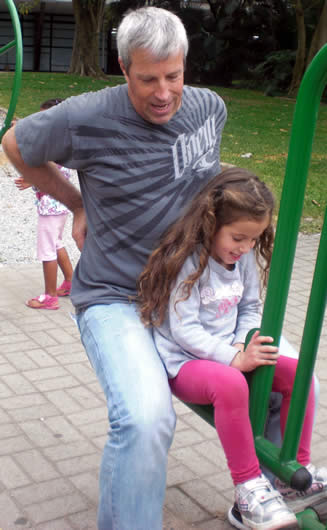 |
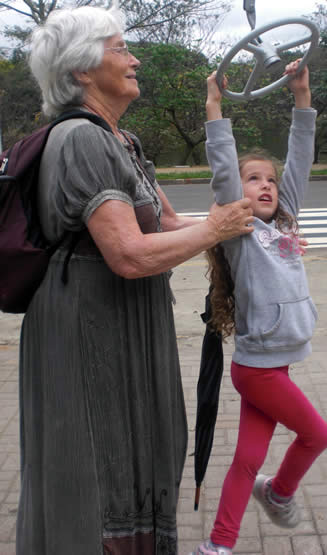 |
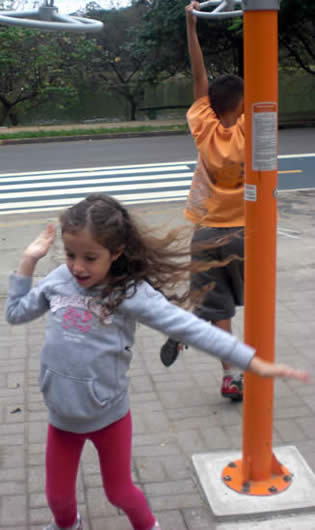 |
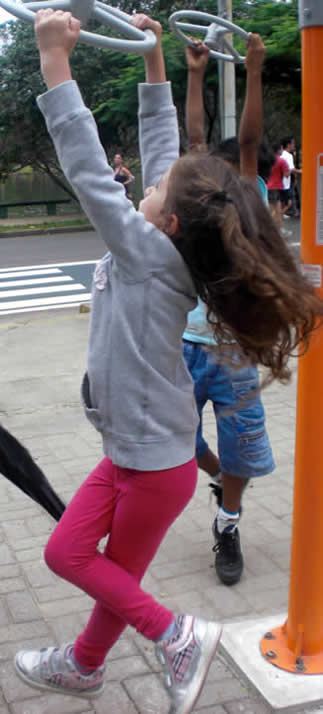 After Mika's great effort - it begins to rain |
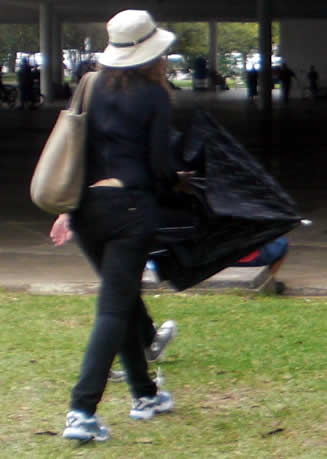 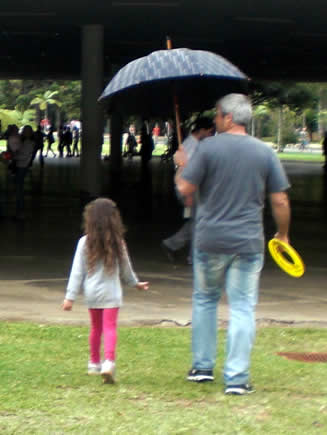
|
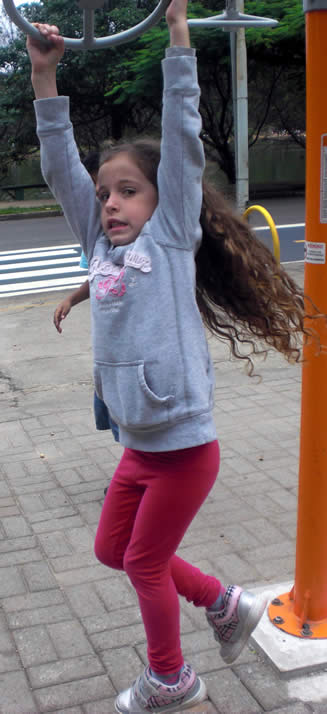 we walk into a huge hall for scate-boarders |
We also saw a show in the Planetarium, in Portuguese,
of course.
But at least I managed to teach Mika the names of her 2 best-loved planets;
"Noga in Hebrew is Venus and Tzeddeq is Jupiter,
remember, when you hear this!"
More frustrating was - because of the language
- a huge exhibition in a special building,
Água na Oca
of which we didn't even understand the purpose.
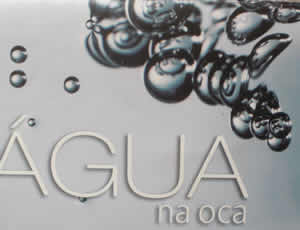 |
While the Google translation
claims that Água na Oca means "Water in the Hollow", I finally found some English words in a Sao
Paulo tourist info A major new exhibition in Sao
Paulo’s Ibirapuera Park, Água na Oca, is exploring the
complex relationship between man and the Earth’s water.The exhibition
is divided by theme, each one examining the physical, biological, environmental,
symbolic and artistic aspects of water and its importance for life. |
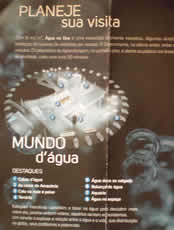 |
Continuation of "En-JOY-ing and Growing with Mika and my Family" on SongPage 2007_08_18
